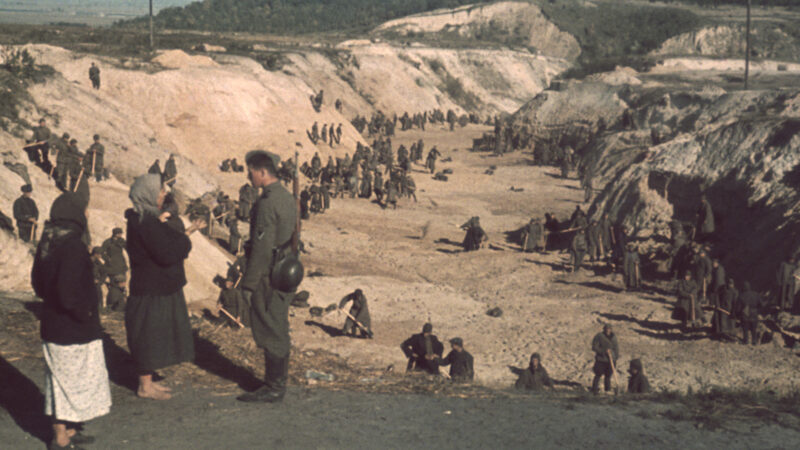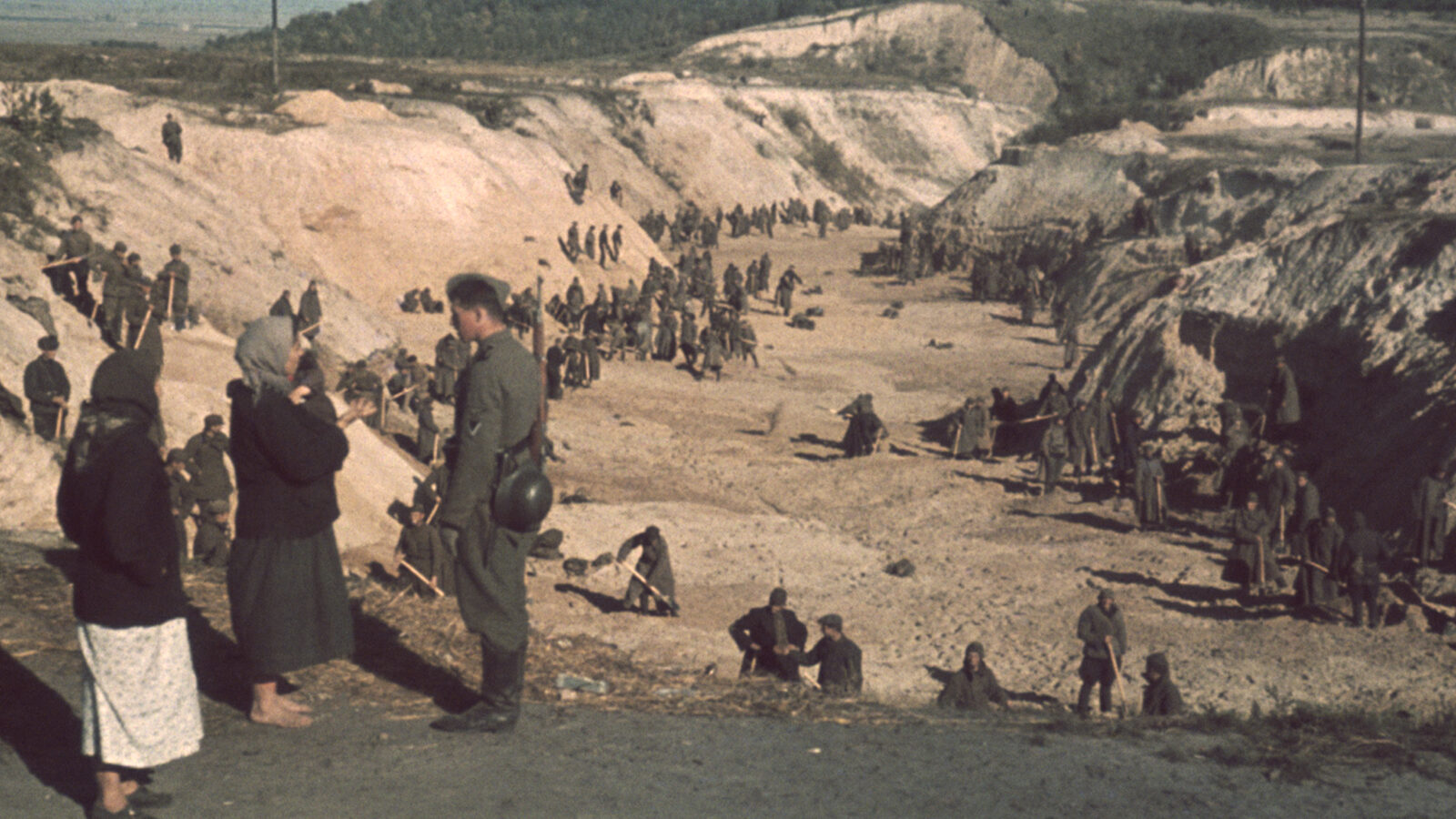BABI YAR. CONTEXT
Competition


BABI YAR. CONTEXT deals with one of the most gruesome massacres in the history of humanity: on 29 and 30 September 1941, 33,711 Jewish men, women and children were murdered by a German special tasks unit and the Ukrainian auxiliary police in Babi Yar valley. After German military forces occupied Kyiv, the city's Jewish residents were commanded to pack their valuables, money, warm clothing and food stores and gather in the valley under the false pretence of an "evacuation". When they arrived, they were ordered to remove their clothing, set aside their baggage and line up at the edge of the ravine, where they were shot dead one by one in cold blood.
The material here, the product of intensive research, reconstructs the historical context of the conditions prevalent at the time in Kyiv and Lviv, while film excerpts from German, Russian and Ukrainian archives tell the heart-breaking story of Babi Yar – a story of war, grief, desolation and death. Sergei Loznitsa succeeds in penetrating the complex events surrounding the horrific crimes perpetrated in the years from 1941 to 1943. That which was once concealed by Soviet authorities is now impressively rendered visible, presented in a straightforward manner on the cinema screen.
BABYN YAR. CONTEKST / BABYN JAR. KONTEXT
UKR 2021 / 121 min / OV + eng SUB
Language: Ukrainian, Russian, German
Director: Sergei Loznitsa
Screenings
- Caligari FilmBühne Sa, 23.04. / 15:30 Uhr
- Murnau-Filmtheater Sun, 24.04. / 16:00 Uhr
- Screenplay: Sergei Loznitsa
- Editor: Sergei Loznitsa, Danielus Kokanauskis, Tomasz Wolski
- Sound: Vladimir Golovnitski
- Producer: Sergei Loznitsa, Maria Choustova
- Production Company: Atoms & Void, Babyn Yar Holocaust Memorial Center
BABI YAR. CONTEXT deals with one of the most gruesome massacres in the history of humanity: on 29 and 30 September 1941, 33,711 Jewish men, women and children were murdered by a German special tasks unit and the Ukrainian auxiliary police in Babi Yar valley. After German military forces occupied Kyiv, the city's Jewish residents were commanded to pack their valuables, money, warm clothing and food stores and gather in the valley under the false pretence of an "evacuation". When they arrived, they were ordered to remove their clothing, set aside their baggage and line up at the edge of the ravine, where they were shot dead one by one in cold blood.
The material here, the product of intensive research, reconstructs the historical context of the conditions prevalent at the time in Kyiv and Lviv, while film excerpts from German, Russian and Ukrainian archives tell the heart-breaking story of Babi Yar – a story of war, grief, desolation and death. Sergei Loznitsa succeeds in penetrating the complex events surrounding the horrific crimes perpetrated in the years from 1941 to 1943. That which was once concealed by Soviet authorities is now impressively rendered visible, presented in a straightforward manner on the cinema screen.